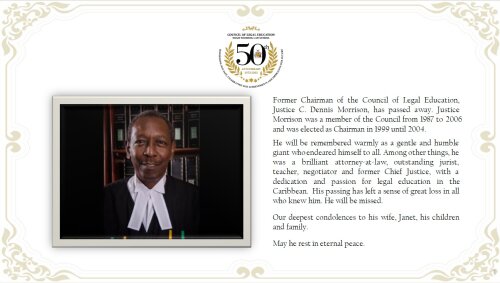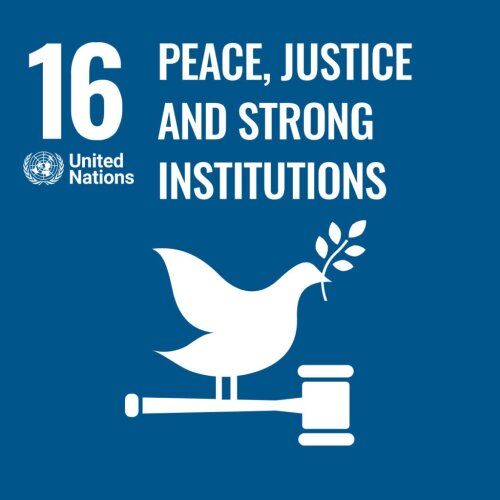Best Permanent Residency Lawyers in Trinidad and Tobago
Share your needs with us, get contacted by law firms.
Free. Takes 2 min.
Or refine your search by selecting a city:
List of the best lawyers in Trinidad and Tobago
About Permanent Residency Law in Trinidad and Tobago
Permanent residency in Trinidad and Tobago grants non-nationals the right to live and work in the country indefinitely. The Ministry of National Security oversees this process, providing individuals a legal status that is less entrenched than citizenship but elevates their rights compared to temporary visa holders. Achieving permanent resident status allows individuals to enjoy several benefits, including the freedom to work without requiring a separate work permit, the ability to travel freely in and out of the country, and eligibility for certain social services. However, it is crucial to meet specific requirements and abide by the laws governing this status to sustain it.
Why You May Need a Lawyer
Securing permanent residency can be complex and may require navigating through various legal and bureaucratic processes. Some reasons to seek legal help include:
- Understanding the eligibility criteria and required documentation.
- Assistance with filling and submitting application forms correctly and on time.
- Guidance in cases of application denials, which might require appeals or additional documentation.
- Addressing unique situations, such as criminal records or previous immigration violations that could affect your eligibility.
- Ensuring compliance with local laws to maintain residency status after it is granted.
Local Laws Overview
The laws surrounding permanent residency in Trinidad and Tobago involve several key aspects:
- The Immigration Act provides the framework for applications, setting eligibility criteria which generally include qualifications like continuous residence, employment history, family ties, or investment in the local economy.
- Local regulations require detailed documentation to prove identity, financial stability, and justified intent to reside in the country.
- Permanent residents must renew their residency cards periodically and adhere to local residency and employment laws to avoid revocation.
- Immigration officers have discretionary power, making it vital for applicants to present a thorough and legally compliant case.
Frequently Asked Questions
What are the basic requirements for applying for permanent residency?
Applicants must generally demonstrate continuous legal residency, employment, family connections, or investment in Trinidad and Tobago, provide financial documents, and undergo background checks.
How long does the process take?
Processing times can vary, typically taking several months to a year, depending on individual circumstances and government processing capacity at the time.
Can I apply for permanent residency if I overstayed a previous visa?
Overstaying a visa can complicate your application. Legal assistance is recommended to address potential barriers related to past immigration violations.
Is there an age limit for applicants?
There is typically no specific age limit for applicants, but documentation requirements may differ for dependents versus primary applicants.
Can I include family members in my application?
Yes, family members such as spouses and children often can be included, but additional documentation and fees may be required.
What rights do permanent residents have?
Permanent residents enjoy several rights, including employment freedom, educational access, and limited social services, though they cannot vote.
Do I need to renew my permanent residency status?
Residency cards need periodic renewal to maintain legal status, even though the category of residency itself is permanent.
What happens if my application is rejected?
Rejection can be appealed, often requiring additional proof or addressing specific concerns raised by immigration officials.
Can permanent residency be revoked?
Yes, it can be revoked due to reasons such as criminal conduct, fraudulent application information, or failure to comply with residency conditions.
Is it possible to apply for citizenship after obtaining permanent residency?
Yes, after a period of continuous residency, permanent residents may apply for citizenship, subject to eligibility and passing requisite checks.
Additional Resources
For those seeking additional information, consider contacting:
- Ministry of National Security: The central body managing residency applications.
- Legal professionals or immigration specialists for personalized advice.
- Local embassies or consulates: Often provide guidance and help with documentation.
- National Libraries or Government Offices: Offer access to legal texts and application forms.
Next Steps
If you require legal assistance in pursuing permanent residency, consider taking the following steps:
- Gather all necessary personal documentation, including identification records, financial proof, and any existing immigration paperwork.
- Consult with a local immigration attorney who specializes in permanent residency applications.
- Prepare questions and important points of concern to discuss with your legal advisor.
- Follow all guidance and requests for information or documentation promptly to facilitate a smooth application process.
Lawzana helps you find the best lawyers and law firms in Trinidad and Tobago through a curated and pre-screened list of qualified legal professionals. Our platform offers rankings and detailed profiles of attorneys and law firms, allowing you to compare based on practice areas, including Permanent Residency, experience, and client feedback.
Each profile includes a description of the firm's areas of practice, client reviews, team members and partners, year of establishment, spoken languages, office locations, contact information, social media presence, and any published articles or resources. Most firms on our platform speak English and are experienced in both local and international legal matters.
Get a quote from top-rated law firms in Trinidad and Tobago — quickly, securely, and without unnecessary hassle.
Disclaimer:
The information provided on this page is for general informational purposes only and does not constitute legal advice. While we strive to ensure the accuracy and relevance of the content, legal information may change over time, and interpretations of the law can vary. You should always consult with a qualified legal professional for advice specific to your situation.
We disclaim all liability for actions taken or not taken based on the content of this page. If you believe any information is incorrect or outdated, please contact us, and we will review and update it where appropriate.
Browse permanent residency law firms by city in Trinidad and Tobago
Refine your search by selecting a city.














